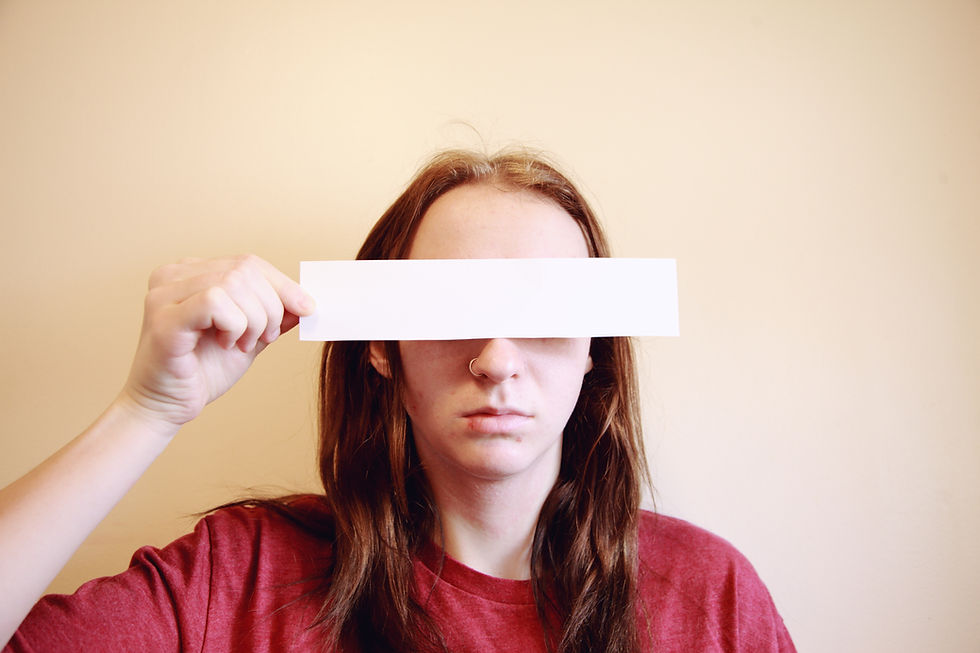ADHD and Sleep: How Lack of Sleep Affects ADHD Symptoms and What You Can Do About It
- Matthew Hallam

- Oct 14, 2024
- 6 min read
Updated: Mar 17, 2025

Individuals with ADHD frequently face sleep difficulties, leading to restless nights, trouble falling asleep, and waking up without feeling refreshed. Sleep issues are not merely a side effect; they significantly worsen ADHD symptoms such as inattention, impulsivity, and emotional instability. Recognising the link between ADHD and sleep is essential, as improved rest can greatly enhance concentration, mood, and daily performance. This blog delves into why sleep is so challenging for those with ADHD, its role in stress and burnout, and practical, reflective strategies to enhance sleep quality. If you’re eager to break free from sleepless nights and wake up more focused and balanced, continue reading to learn how improving sleep is a key aspect of effectively managing ADHD.
How does ADHD affect sleep, and why is it important?
ADHD is frequently accompanied by significant sleep difficulties, impacting both the quality and quantity of sleep. Common issues include trouble falling asleep, difficulty staying asleep, restless sleep, and irregular sleep-wake cycles. These problems are partly due to how ADHD influences brain regulation, especially concerning arousal and attention. ADHD is often linked to overstimulation and challenges in "shutting off" at night, resulting in a racing mind and hyperactivity, which can make sleep difficult to achieve (Becker et al., 2019). Unfortunately, sleep and ADHD create a feedback loop—poor sleep worsens ADHD symptoms such as inattention, impulsivity, and emotional dysregulation, while the core aspects of ADHD make restful sleep harder to attain. Understanding and addressing sleep issues is crucial for anyone with ADHD, as better sleep can significantly improve focus, emotional regulation, and overall wellbeing.
What are the common sleep challenges faced by individuals with ADHD?
People with ADHD encounter several unique sleep difficulties that can greatly affect their daily lives:
Difficulty Falling Asleep: Referred to as delayed sleep phase syndrome, many with ADHD have a reversed body clock, feeling more awake at night when they should be preparing for sleep. This makes it challenging to fall asleep at a suitable time.
Restless and Disrupted Sleep: Some individuals experience restless legs, vivid dreams, or frequent awakenings, leading to broken sleep. The hyperactivity component of ADHD affects not only daytime but can also result in restless nights.
Irregular Sleep-Wake Cycles: Inconsistent schedules, late nights, and irregular wake times hinder the establishment of a stable circadian rhythm, which is crucial for good sleep quality.
Daytime Sleepiness or Fatigue: Due to inadequate sleep quality or lack of rest, those with ADHD may struggle to remain alert during the day, worsening issues with concentration and productivity (Becker et al., 2019).
How does inadequate sleep influence ADHD symptoms, and what is its connection to focus, burnout, and allostatic load?
Inadequate sleep directly intensifies the primary symptoms of ADHD – inattention, impulsivity, and emotional dysregulation. When sleep quality is poor, the capacity for self-regulation and focus decreases, leading to increased distractibility, memory issues, and irritability. This results in a vicious cycle where sleep deprivation worsens ADHD symptoms, which in turn further disrupt sleep (Bijlenga et al., 2019).
Additionally, insufficient sleep contributes to burnout and elevates allostatic load – the accumulated stress on the body and brain. When individuals with ADHD lack sufficient sleep, their ability to handle daily stressors, regulate emotions, and maintain attention is diminished. This increases the likelihood of entering the boom and bust cycle mentioned in previous blogs, where phases of intense focus and productivity are followed by periods of exhaustion. Without adequate sleep, managing emotional and physical energy becomes nearly impossible, worsening ADHD-related burnout and mental fatigue.
How does self-reflection contribute to better sleep for individuals with ADHD?
Self-reflection is crucial for enhancing sleep hygiene and recognising factors that lead to poor sleep. By examining habits, emotional states, and sensory triggers, individuals with ADHD can pinpoint what disrupts their sleep and make necessary changes. For instance, engaging in reflective practices like journaling before bed can reveal insights into evening routines that are either stimulating or calming, and help identify patterns such as screen time that may affect sleep quality.
Through reflecting on sleep patterns, individuals with ADHD can cultivate self-awareness regarding their specific sleep needs. This involves understanding sensory preferences (like needing complete darkness or white noise), recognizing emotional states that hinder falling asleep, and modifying pre-bed routines to encourage relaxation. Over time, reflection and self-awareness foster improved sleep strategies, such as maintaining consistent sleep schedules, minimising evening stimulation, and establishing calming rituals before bedtime.
What are some effective strategies for enhancing sleep in individuals with ADHD?
Enhancing sleep in those with ADHD requires a comprehensive approach tailored to individual needs and preferences. Here are some strategies to consider:
Establish a Consistent Sleep Schedule: Maintain the same bedtime and wake-up time daily, including weekends, to regulate the body’s internal clock and enhance sleep quality.
Relax Before Bedtime: Develop a calming pre-sleep routine, such as reading, taking a warm bath, or practicing mindfulness meditation. Avoid stimulating activities like screen use, as blue light can disrupt melatonin production.
Optimize Sensory Environment: Ensure the bedroom is sleep-friendly by darkening the room, reducing noise (or using white noise machines if preferred), and maintaining a comfortable temperature.
Avoid Stimulants and Heavy Meals Before Bed: Caffeine, nicotine, and heavy meals can disrupt sleep. Try to avoid stimulants and large meals several hours before bedtime.
Reflect on Sleep Patterns: Keep a sleep journal to track sleep patterns, bedtime routines, and factors affecting sleep. Use these insights to adjust routines and enhance sleep hygiene.
By implementing these sleep strategies and engaging in regular self-reflection, individuals with ADHD can identify sleep patterns and make targeted changes to improve sleep quality. Better sleep not only boosts focus and emotional regulation but also helps break the cycle of burnout and reduces allostatic load, contributing to overall wellbeing.
What is the connection between sleep, focus, and the regulation of emotional and physical energy?
Quality sleep is fundamental to maintaining focus, emotional stability, and energy regulation, all of which are essential for individuals with ADHD. Sleep allows the body to restore and reset, and when disrupted, it affects the brain's ability to regulate attention, manage emotions, and process sensory inputs. Insufficient sleep hinders executive function, making it more challenging to concentrate, organise tasks, and manage time effectively (Bijlenga et al., 2019).
Sleep is also crucial for emotional regulation; a person lacking sleep is more prone to emotional instability, heightened stress responses, and impulsive behavior. This emotional dysregulation further disrupts the ability to focus and maintain attention on tasks, creating a negative feedback loop. Additionally, without adequate sleep, physical energy is diminished, making it difficult to stay active, engage in daily routines, and sustain motivation.
Key Takeaways
People with ADHD frequently experience sleep difficulties such as trouble falling asleep, restless nights, and irregular sleep-wake patterns, which worsen ADHD symptoms.
Inadequate sleep increases burnout and allostatic load, making stress management, concentration, and emotional control more challenging.
Engaging in self-reflection aids in identifying sleep patterns, sensory triggers, and emotional states that impact sleep quality, enabling the development of better sleep strategies and enhanced overall functioning.
Effective sleep strategies involve creating routines, minimizing evening stimulation, managing the sensory environment, and keeping a sleep journal to reflect on and enhance sleep habits.
High-quality sleep enhances the ability to concentrate, manage emotions, and balance physical energy, which is crucial for effectively managing ADHD symptoms.
Conclusion
For those with ADHD, sleep is more than just a restful break; it is essential for managing symptoms, maintaining focus, and preventing burnout. By tackling sleep problems and adopting reflective practices to enhance self-awareness, individuals can disrupt the negative cycle of inadequate sleep, decreased focus, and emotional instability. Better sleep enhances attention, emotional regulation, and physical energy, thereby reducing the allostatic load and promoting a balanced, healthier lifestyle. For further insights into how focus regulation and ADHD burnout interact with allostatic load, check out our previous blogs on these important subjects.
References
Becker, S. P., Langberg, J. M., Eadeh, H. M., Isaacson, P. A., Bourchtein, E., & Flannery, K. M. (2019). Sleep and daytime sleepiness in adolescents with ADHD: Associations with school functioning. Sleep, 42(1), zsy202.
Bijlenga, D., Vollebregt, M. A., Kooij, J. J. S., & Arns, M. (2019). The role of the circadian system in the etiology and pathophysiology of ADHD: Time to redefine ADHD? Attention Deficit and Hyperactivity Disorders, 11(1), 5-19.
Shields, G. S., & Slavich, G. M. (2017). The lablife balance: Progress toward understanding how stress physiology and coping behaviour influence stress-related health disparities. Psychoneuroendocrinology, 83, 101-104.

Struggling with Sleep? Let’s Make Rest Work for You
Good sleep isn’t just about going to bed earlier—it’s about understanding your brain’s relationship with rest and creating a routine that actually sticks.
Revamp Your Sleep: A How-To Guide: Learn why ADHD can make sleep challenging and discover practical, research-backed strategies to improve rest.
Sleep Revamp Planner: A structured tool to help you track, tweak, and optimise your sleep habits in a way that works for you.
Disclaimer: The information provided in this blog post is for educational and informational purposes only and is not a substitute for professional psychological or medical advice. The content is intended to support general wellbeing and personal growth, but it may not address specific individual needs. If you have mental health concerns or require personalised support, please consult a qualified healthcare provider. Equal Psychology, Equal Breathwork, Reflective Pathways and its authors are not liable for any actions taken based on this information.
.png)



Comments